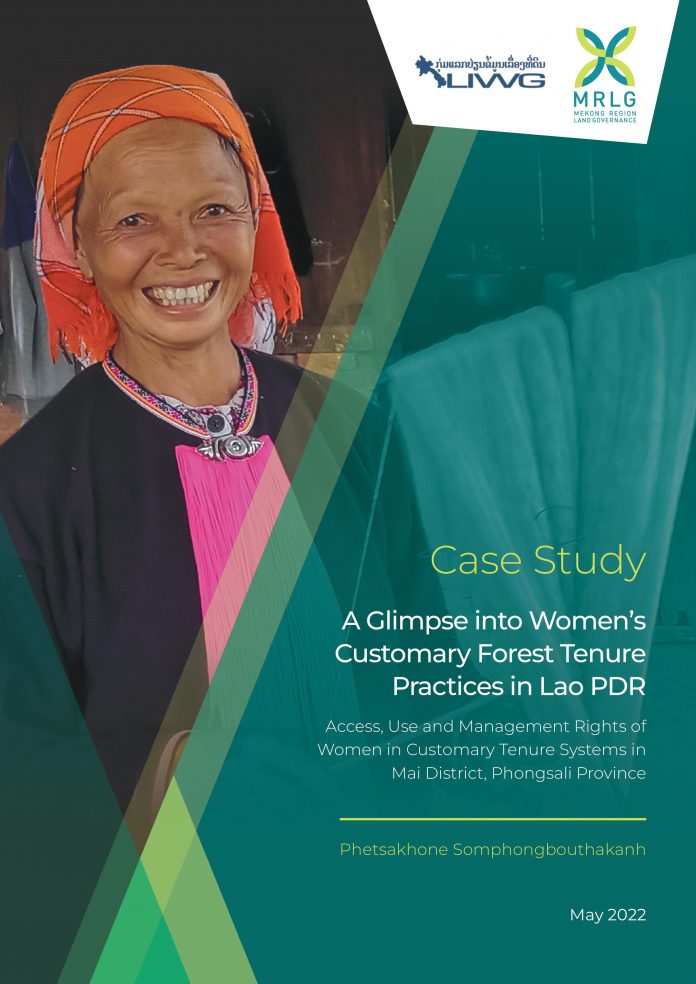
By LIWG
Access, Use and Management Rights of Women in Customary Tenure Systems in Mai District, Phongsali Province
This case study was commissioned by the Land Information Working Group (LIWG) in partnership with the Faculty of Law at the National University of Laos and financially supported by the Mekong Region Land Governance (MRLG) Project.
The contents of this case study include:
- Introduction
- Methodology and Research Ethics
- Conceptual Framework
- Customary Forestland and Forest Resources Tenure in the Study Sites
- Recommended Ways Forward
- Conclusion
This case study was carried out in two villages located in Mai district of Phongsali province, in northern Lao PDR. One village is inhabited by a Khmou Ou (Mon-Khmer) ethnic group and the other by a White Tai (Lao-Tai) ethnic group. The fieldwork was carried out from the end of January to the beginning of February 2021.
The case study explores the intersect between customary tenure systems and gender roles in two villages in Phongsali district in the north of Laos. The country has a diverse population of ethnic communities who depend on forests and other natural resources for their livelihoods. These communities play an important role for conserving complex landscapes. However, their traditional land tenure practices are insufficiently documented and therefore poorly understood, and even more so the gender relations in customary systems. Based on field research, the study compares two distinctly different ethnic groups, Khmou Ou and White Tai. Despite being geographically close, the study shows how these ethnic groups differ in terms of traditional forest management and gender roles. It found that women have intimate relationships with their forests yet have less rights to forests than men (such as rights to inheritance and access to forest income).

